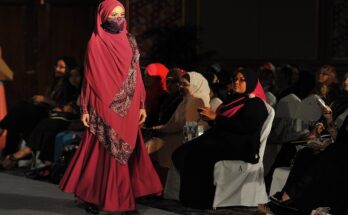The fashion industry has often been criticized for being one of the most polluting and exploitative industries in the world. However, there is a growing movement towards sustainable and ethical consumerism, which is changing the way people perceive fashion and the clothes they wear. This movement is known as “slow fashion”.
Slow fashion is a fashion trend that aims to promote sustainability, ethical practices, and consumer awareness. It is a response to the fast-paced and disposable nature of the traditional fashion industry, which relies on frequent buying and discarding of clothes. Slow fashion advocates for clothes that are made to last, using materials that are environmentally friendly and workers that are treated fairly.
The rise of slow fashion is mainly due to a growing awareness among consumers about the impact of their buying decisions. The fashion industry is one of the largest polluters in the world, with water consumption, greenhouse gas emissions, and textile waste being the main culprits. Slow fashion aims to reduce this impact by encouraging consumers to buy less, buy better quality, and take care of their clothes.

One of the core principles of slow fashion is the use of sustainable materials. Instead of using synthetic materials that are non-renewable and contribute to pollution, slow fashion uses natural and organic materials that are biodegradable and non-toxic. This includes materials such as organic cotton, linen, hemp, and silk. Sustainable materials not only reduce the environmental impact of fashion but also improve the quality and durability of clothes.
Another important principle of slow fashion is ethical production. This means ensuring that the workers who make the clothes are treated fairly and paid a living wage. Slow fashion brands often have transparent supply chains and work directly with artisans and craftsmen, ensuring that workers are paid fairly for their work. This reduces the likelihood of worker exploitation and improves the quality of the clothes.

Slow fashion also encourages consumers to buy clothes that are designed to last. This means buying clothes that are made from high-quality materials and are designed to withstand wear and tear. Slow fashion brands often offer repair services or encourage consumers to repair their clothes themselves rather than tossing them out. This helps reduce textile waste and helps consumers build a sustainable wardrobe.
Tthe rise of slow fashion represents a significant shift towards sustainable and ethical consumerism. Slow fashion encourages consumers to be more mindful about their buying decisions, and to consider the environmental and social impact of their purchases. By choosing sustainable and ethical fashion, consumers can reduce the impact of the fashion industry on the planet and promote a more responsible and conscious approach to fashion.




